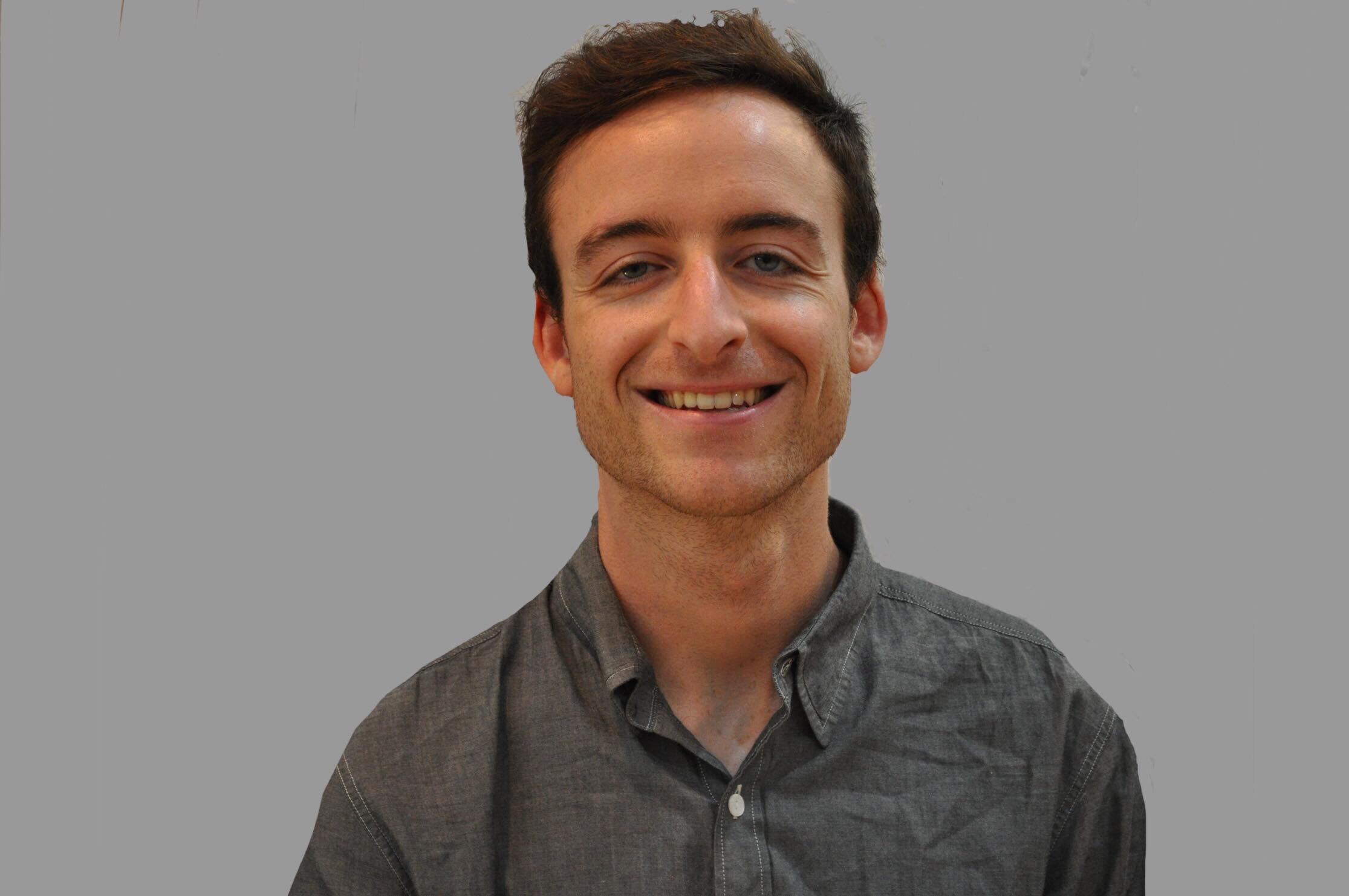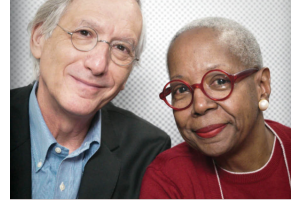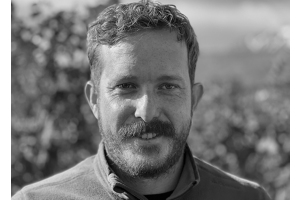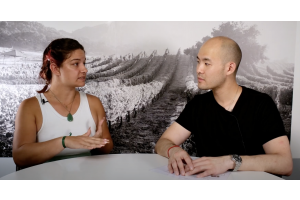

The hills surrounding the Moselle River constitute Germany’s oldest winegrowing region, and its steepest. What some still call Lower Moselle, near the French border, is now more often referred to as Terrassenmosel, or the terraced Moselle, in recognition of the characteristic terraces cut into the steeply inclined banks, which give the hills the appearance of grassy pyramids. Locals have been cultivating grapes here since at least Roman times, and the landscape is still studded with picturesque, gothic castles in various states of disrepair, which peer out protectively over the river valley.
Still, despite the region’s longstanding viticultural history, its wines, chiefly Rieslings, are best known for their fresh, ripe, energetic character, which stems from a combination of the region’s geography and its farming practices. The valley keeps the region’s climate temperate, as do the abundant deposits of slate in the soil, which absorb the sun’s heat during the day and release it again at night. And that slate is also responsible for the hallmark minerality of Moselle Rieslings. Vines here must pierce through several layers of slate in order to access nutrients, and the grapes acquire flinty, floral aromas and racing acidity in the process.
To grow wine on these steep and rocky slopes requires dedication, perseverance, and a standard of hands-on care that is almost unparalleled in modern winemaking. Case in point: the ancient terraces that line the banks of the Lower Moselle are so narrow and so inclined that modern agricultural tools can’t operate there, and the vines must be tended entirely by hand. Grapevines are staked to the ground individually, and workers will even go so far as to carry washed out soil, and its invaluable minerals, back up the hillside after storms. This level of individual attention carries over into the harvesting and winemaking—the best Moselle Rieslings walk a razor-thin tightrope, balancing sweetness, acidity, and alcohol content to produce crisp and lively wine, a perfect portrait of springtime freshness.
More recently, Terrassenmosel has started to enter into a new chapter in its centuries-long viticultural history. Because of climate change, the region’s wines are changing. Consistently warmer seasons mean consistently exceptional vintages—to a point. But where older generations of winemakers in Moselle worried that their grapes might not get enough sun, the problem today is making sure they don’t get too much, to prevent overripening. Vineyards that once sat in prized locations are now less in favor, while other locations have seen increased demand. Still, as the region’s climate continues to change, its popularity as a tourist destination only continues to rise, perhaps since the valley seems perpetually frozen in time. What could be better than a constitutional stroll through the gentle hills, past stoic castle turrets and charming waterfront villages, punctuated only by stops to sample the local delicacies: venison, lingonberries, and lightly fruity Rieslings.
Weingut Heymann-Löwenstein is one of the region's most esteemed estates--although it was officially founded in 1980, the Löwenstein family has been making wine in the same region for over 500 years. We talked to Sarah Löwenstein about her wines and the distinctive history of Terrasenmosel.
 Sarah Löwenstein: My parents started the winery in 1980. My father, he grew up in Winningen, the same town where the winery is now. His father had a winery, but when he was 15 he was asked if he wanted to take over the business, or if you want to finish school and go study. He said, okay, I will go study. I'm not going to take over. His brother was asked, my uncle. My father hadn't planned to be a winemaker and come back to Winningen, but sometimes things happen in life and you don't really influence it. He met my mother, and they started agriculture. They wanted to start up their own agriculture thing.
Sarah Löwenstein: My parents started the winery in 1980. My father, he grew up in Winningen, the same town where the winery is now. His father had a winery, but when he was 15 he was asked if he wanted to take over the business, or if you want to finish school and go study. He said, okay, I will go study. I'm not going to take over. His brother was asked, my uncle. My father hadn't planned to be a winemaker and come back to Winningen, but sometimes things happen in life and you don't really influence it. He met my mother, and they started agriculture. They wanted to start up their own agriculture thing.The way they get there, you know, that's changing with the years. So let's say for example, in 1980 my father fermented all the wines to zero because he wanted to reduce the sulfur level, but then he found out from the taste, it's quite tense and quiet... not so easy, or approachable, so he switched to stop to inoculate. He decided to use only the natural yeast in 1992, which in 1992, everybody was freaking out and thinking that he is playing with the devil or something. But he went, he took this path and I'm pretty happy that he did because now I can really profit from it because we have very active yeast in our cellar. We don't have any stops in fermentation. Whatever is going on in the cellar is just done by indigenous yeast. For me it's important to keep this idea of, you know, flexibility and progressing also in what I do now. So it's not that I want to have a recipe, that's how I do the wine, it's more trying to change things to get better.
Talk a little bit about where you are in the Moselle. You're the Lower Moselle?
So we call it Terrassenmoselle. We prefer the word Terrassenmoselle than Lower Moselle, because we have very, very, very terraced vineyards. We are at the very end of the Moselle, about 10 kilometers far away from where the Moselle flows into the Rhine. The main and dominant grape variety in our place is Riesling. That's also why we have 98% of Riesling and just a little bit of Pinot Noir. The soils are very slate driven. That's all over the Moselle, but in our region, the soils are very, the rocks are pretty compact, so they contain a lot of sand and not so much clay. For example, in the Middle Moselle, the rocks are nearly breakable. You can break the rocks off in different layers, the different stones. But our rocks, you can't break them. Which means they are pretty compact.
 So it's harder for the roots to get...
So it's harder for the roots to get...It's harder for the roots, and we force the roots to get very deep. We have a very dense plantation and all the vineyards my parents bought them we planted vines in between them to make it even more dense, of course you need to find a balance in each vineyard. So it's not that it's just excellent, the higher the density as better that's also one calculation. So you need to find a balance. But for me it's important to get the deep roots, especially when we replant young vines, it's very important for me the first five, six years to force them to make deep roots and then they are stable. Also for changes in climate, like the last recent years we had very dry years and the vines did very well.
Talk a little bit about your philosophy of farming and viniculture.
For me the sustainable approach that we have is very important, which means it combines all aspects from ecological ideas to social aspects and also economic aspects. This is something which is really important for everything what we do...so I love transparency, like when I, and also others, see what I do. Everything we are doing in the vineyard and also at home, everything, we make it open to the public. For example, like the social aspect, the people working with us, do they have a social insurance, yes or no? How many years are they with the company? Do we create a good environment for them? And also the economical aspect of, do I really make money at the end? So is it sustainable for the future or is it just only for the moment?
How do you farm the 14 hectares? They're all on a very steep terraces, yes?
 Yes, so by hand, so just with a lot of human beings involved and no machines, so everything is maintained manually. Which means for example, we just started pruning one week ago on, we're going to prune until the middle of February. So it takes us three months just for one work we need to do. For this we have 15 fully fixed employed people working with us plus seasonals.
Yes, so by hand, so just with a lot of human beings involved and no machines, so everything is maintained manually. Which means for example, we just started pruning one week ago on, we're going to prune until the middle of February. So it takes us three months just for one work we need to do. For this we have 15 fully fixed employed people working with us plus seasonals. And what is your philosophy of winemaking? I read somewhere that your father was called a madman or something like that. Explain that.
He's been given a lot of different names. So I think a huge step was really to stop to inoculate (yeast) in 1992 and that was something he took the risk to do. And it was pretty risky because you never know what's happening. You're losing a little bit of control, and I think that's an aspect which is very important for winemaking for us. That you're always between the two borders of control and no control about just keeping things going. Everything that we do has an impact on the taste of the wine. What my father did once was to go this path of a little bit less control and more just let the wine do what it wants to do.
You can imagine making the change from an industrial yeast to natural yeast causes a lot of stops in fermentation, which means that once it started to ferment it stopped, then started to ferment and stop. And my parents were thinking about what can we do to bring in more energy into the cellar to keep the yeast going. So they implemented audio pipes coming up in the courtyard directly to the cellar to bring in some sound, and if you don't hear it, at least some energy to keep going. And also to reflect a little bit of our philosophy because the air which is coming in, in Greek mythology is connected to Apollo, everything which is rational and controllable. And then we have the antidote, which is water connected to Dionysus, everything which is out of control. This is symbolized by water winds we are having in a part of our cellar.
So we have groundwater floating gently to our cellar. Also here, the double meaning on the one hand of course is the philosophy, but on the other hand also the practical impact have more moving, going on just to keep the yeast going. And since 2009 we have very nice fermentation processes going on. So I think we changed a lot of different things and you know, honestly that's the thing which is nice about wine that you don't really know what's going on. There's only a small aspect of a small piece of things which we have under control or when we know why some things are happening, and the huge impact of things we don't understand. And it's great because this is the difference with an industrial product. With an industrial product, you have a recipe, it tastes every day the same. Coca-Cola will taste the same tomorrow and in two years. With wine, you're going to have a lot of changes, a lot of things unknown, and that makes it so great and also not replaceable.
Talk a little bit about the style of the wine that you make.
So the style I would say can be said as a dry Riesling but not bone dry, with the acidity more in a balanced way. So the idea is to find in each vintage of course the balance between acidity, sugar, and alcohol to leave some space for the individual taste of each vineyard coming out. So the approach is always to make one which reflects the vineyard. It's one vinification. It's one style for each vintage where we find the balance. And then besides this, we do some with botrytis, some residual sugar wines, starting from winter 2014. Before that, all the dry wines contained always a certain amount of botrytis. Now this is sorted out and goes into really sweet wines.
So you used to add a small percentage of botrytis wine into your regular cuvées and now you've stopped doing this?
And talk a little bit about the Moselle from a style point of view versus the Terrassenmoselle.
 No. It's pretty hard to say that there is like a stylistic difference. So, of course, we have certain climate aspects at the Terrassenmoselle. For example, the average temperature is higher than at the Upper Moselle and also at the Middle Moselle. As I already said, the rocks are different. So the slate is different, much more compact. So for me, you know, if I would sum it up for me, you have a certain energy. Powerful. I wouldn't say that in the Middle Moselle there is no minerality and we have the minerality, but it's different. I think it's always very difficult to speak about tastes. I would say it's a little bit more energetic. Maybe at Terrassenmoselle, they have a certain power.
No. It's pretty hard to say that there is like a stylistic difference. So, of course, we have certain climate aspects at the Terrassenmoselle. For example, the average temperature is higher than at the Upper Moselle and also at the Middle Moselle. As I already said, the rocks are different. So the slate is different, much more compact. So for me, you know, if I would sum it up for me, you have a certain energy. Powerful. I wouldn't say that in the Middle Moselle there is no minerality and we have the minerality, but it's different. I think it's always very difficult to speak about tastes. I would say it's a little bit more energetic. Maybe at Terrassenmoselle, they have a certain power.As far as vintage variation, how do your wines change from year to year?
As I said, it's important for me to find a balance in each vintage, which means that we have vintages where we have a high acidity and then I want to have a little bit higher residual sugar to balance this acidity off to have an elegant wine. And then we can have years, for example, like 2018 where the acidity wasn't that high due to the climate, and then I can have a little bit lower zero sugar, but this is done by tasting, so we don't look the up the numbers. So the numbers don't tell me anything. So it's just the tasting experience and in the end, the palate, which is making the decision.
And talk a little bit about your personal wine journey. You, your parents, obviously winemakers. Was there a point where you were like, maybe I'll do it, maybe I'll not?
It was very long at the point. Maybe not. So in some ways the history is repeating. I also, I didn't want to do it. I didn't want to take over the one way for me, I was so fed up with wine, you know, going up there in this small village and to wine all around me and the topic at home, wine, wine, wine. After finishing school I went studying an area in where there is no wine at all. I studied economics, educational science and French literature and linguistics, so everything besides wine I could find. But then, I was studying and so nearly every evening I was buying a bottle of wine somewhere. I was reading books about wine. Everything I would do besides my study was connected to wine, and then my former husband just one evening asked me are you sure that you don't want to take over the business? You know, you're so into this wine topic, just maybe you should rethink it, and that's what I did.
And other than your parents, did you have any influences on your winemaking?
Yes, we have a cellar master. She's been with us since 2009 so she has definitely had an influence in the winemaking and in our whole structure in general. Then we've had since 2007 a vineyard manager, she did an apprenticeship with us and then she never left.
So quite a lot of women.
Yes. I don't know how this came, but yes, we have a lot of women.
Good energy in the vineyards.
Yes, most of the time. But it needs to be a balance, you know? It's often good to have a mixed team.










